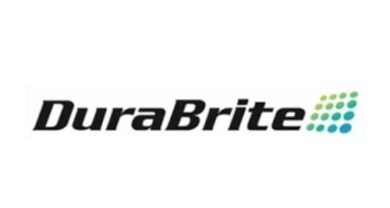Michigan awards $3.6M for invasive species prevention and management

The state of Michigan recently announced that a total of $3.6 million in grants for 29 projects to combat invasive species will be awarded through the Michigan Invasive Species Grant Program.
“Protecting our water and preserving our environment are essential to ensuring our economy, families, and communities succeed,” said Gov. Gretchen Whitmer. “I am proud to see the DNR, MDARD, and EGLE collaborate to prevent and manage the spread of invasive species in our state. These grants will impact every corner of our state and help all Michiganders thrive.”
The program – cooperatively implemented by the Michigan departments of Agriculture and Rural Development; Environment, Great Lakes, and Energy; and Natural Resources – addresses prevention, detection, eradication and control of aquatic (water-based) and terrestrial (land-based) invasive species in Michigan through four key objectives:
- Preventing the introduction of new invasive species.
- Strengthening the statewide invasive species early detection and response network.
- Limiting the spread of recently confirmed invasive species.
- Managing and controlling widespread, established invasive species.
Improving prevention and management
This year’s grants will provide funding for a range of efforts targeting aquatic invasive species:
- Investigating the current extent of didymo, or “rock snot,” in Michigan waters and studying the triggers that promote its growth.
- Expanding survey and enhancing management of European frog-bit across all 15 counties in the Upper Peninsula.
- Initiating a program in northern Michigan and U.P. high schools to develop student-led stewardship projects to prevent the spread of aquatic invasive species.
- Implementing a mobile boat wash program in northern Michigan to educate boaters on “Clean, Drain, Dry and Dispose” actions to prevent the spread of aquatic invasive species.
Funding also will support projects to improve management of terrestrial invasive species:
- Supporting expanded survey and treatment of hemlock woolly adelgid in West Michigan.
- Developing a risk assessment to prioritize treatment of Japanese knotweed in the western U.P.
- Assessing the impact of beech bark disease on tree health and regeneration.
- Surveying for the presence of beech leaf disease in Michigan and studying the distribution of the invasive nematode (microscopic worm) associated with the disease.
Support in every Michigan county
This year’s grants also will support 20 regional Cooperative Invasive Species Management Areas, the network of partnership organizations working to manage and control invasive species and provide service to all 83 counties in the state. CISMA projects include enhanced education and outreach, technical assistance to landowners, and survey and treatment of high-priority invasive species.
Program background and progress
In 2014 the state Legislature designated $5 million in annual funding to address invasive species. This support substantially enhanced Michigan’s Invasive Species Program for aquatic organisms, supported a formal program for terrestrial species and initiated the Michigan Invasive Species Grant Program.
This cycle marks the seventh year of program funding. To date, more than $25 million has been awarded to support 173 projects by units of government, nonprofits and institutions. Because of Michigan’s Invasive Species Grant Program:
- More than 494,000 acres of land and water have been surveyed for invasive species.
- More than 38,500 acres have been treated for invasive terrestrial and aquatic plants.
- 206,000 people have been provided with information about invasive species through direct contact, including face-to-face interactions at boat washes, workshops, trainings and other events.
- An additional 23,221,000 people were reached through grantees’ indirect outreach efforts, including mail, newspapers, social media and handouts.
Over $5 million requested
The program began accepting grant applications for this funding cycle in October 2020. This year, 41 applications were received, requesting more than $5 million in support. Grant applicants were asked to commit to providing at least 10 percent of the total project cost in the form of a local match.
The full list of grant recipients, project descriptions and award amounts are available on the Michigan Invasive Species Grant Program website at Michigan.gov/MISGP.




